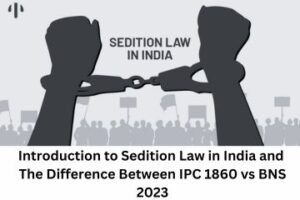Understanding the Doctrine of Eclipse, Severability, and Waiver
Introduction
In the realm of law, the doctrines of eclipse, severability, and waiver hold significant importance. These doctrines play a crucial role in interpreting and applying legal principles, ensuring fairness, and resolving complex legal situations. This article provides a comprehensive exploration of the Doctrine of Eclipse, Severability, and Waiver, shedding light on their meaning, significance, and implications in the legal context.
The Doctrine of Eclipse
The Doctrine of Eclipse refers to a legal principle that recognizes the continued existence of a law or provision despite being inconsistent with the Constitution. Under this doctrine, a law or provision that violates fundamental rights remains dormant, overshadowed by the Constitution. However, if the inconsistency is removed, the law or provision re-emerges and becomes fully effective. The Doctrine of Eclipse ensures that unconstitutional laws or provisions can regain their validity once the constitutional defect is rectified.
The Doctrine of Severability
The Doctrine of Severability is a principle that allows the separation of valid and invalid portions of a law or contract. When a court finds a particular provision or clause to be unconstitutional or unenforceable, the doctrine enables the court to strike down or invalidate that specific part while preserving the remaining valid portions. The purpose of severability is to ensure that the law or contract remains functional and effective even after removing the unconstitutional or unenforceable element.
The Doctrine of Waiver
The Doctrine of Waiver involves the voluntary and intentional relinquishment of a legal right or claim by a party. It allows individuals or entities to renounce their entitlement to certain rights or benefits. Waiver can occur explicitly through an explicit declaration or agreement, or implicitly through actions that indicate the intention to waive a right. Once a right is waived, it cannot be reclaimed unless there is a specific provision allowing its revival. The Doctrine of Waiver promotes flexibility and party autonomy in legal relationships.
Significance and Implications
The doctrines of eclipse, severability, and waiver have significant implications in the legal landscape:
- Legal Interpretation: These doctrines aid in the interpretation and application of laws, ensuring their compatibility with constitutional principles and fundamental rights.
- Constitutional Validity: The doctrine of eclipse preserves the validity of laws despite temporary inconsistency, allowing them to regain their effect once the inconsistency is remedied.
- Functional Laws and Contracts: The doctrine of severability ensures that laws and contracts remain operative by removing invalid provisions while preserving the valid ones, promoting legal certainty and efficacy.
- Flexibility and Party Autonomy: The doctrine of waiver empowers individuals and entities to make informed choices by relinquishing certain rights, enabling flexible legal relationships and negotiations.
Case Laws
- Shankari Prasad v. Union of India (1951): In this landmark case, the Supreme Court of India upheld the validity of the First Amendment Act, applying the doctrine of eclipse. The court held that although the amendment violated the fundamental rights guaranteed by the Constitution, it remained valid as the Constitution eclipsed these rights.
- State of Karnataka v. Hansa Corporation (2019): The Supreme Court of India applied the doctrine of severability in this case. The court struck down certain provisions of a law as unconstitutional while upholding the validity of the remaining provisions, ensuring the law’s continued effectiveness.
- Lalu Prasad Yadav v. State of Bihar (2013): In this case, the doctrine of waiver was invoked. The court held that by voluntarily participating in the legal process without raising objections, the petitioner had waived his right to challenge certain procedural aspects of the case.
Conclusion
The doctrines of eclipse, severability, and waiver are integral to the legal framework, ensuring the proper interpretation, implementation, and flexibility of laws. While the doctrine of eclipse acknowledges the temporary overshadowing of inconsistent laws, severability allows for the preservation of functional aspects, and waiver enables voluntary renunciation of rights. These doctrines contribute to the stability, fairness, and adaptability of legal systems, providing essential tools for resolving legal complexities and upholding justice.
Keywords: Doctrine of Eclipse, Doctrine of Severability, Doctrine of Waiver, Legal Interpretation, Constitutional Validity, Functional Laws and Contracts, Flexibility, Party Autonomy, Case Laws, Shankari Prasad v. Union of India, State of Karnataka v. Hansa Corporation, Lalu Prasad Yadav v. State of Bihar.




